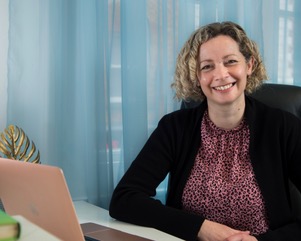Navigating the Pandemic so far
There is evidence that the pandemic has impacted significantly on the emotional wellbeing of women, especially those of us who are parents. Research by The Mental Health Foundation has found that women are more likely to shoulder the higher proportion of child caring responsibilities and managing this in addition to work and demands of running a home. The covid -19 mental health and wellbeing surveillance report also highlighted that woman have been significantly impacted by the pandemic and more likely to make adjustments in order to be able manage running a home, childcare and work, leading to increased psychological distress. Lone mothers were found to be particularly vulnerable. The charity gingerbread has also highlighted the risks to the mental health of single parents because of the pandemic. Specific factors include the financial strain and the impact of shouldering home-schooling alone. Additional factors include the impact of being socially isolated when parenting a baby or young child.
The “Coronacoaster”
The continued restrictions because of the pandemic has meant we have continued to navigate social isolation, loneliness, loss of connection with other parents. Not being able to have those normal and valued conversations around parenting and the challenges of being a parent. The simple and supportive experiences which can be so important for our wellbeing as parents. Simply being able to leave the house and meet up with other parents at a soft play or toddler group. The routines and conversations can provide a stable base for many of us in terms of routine and connection with others.
In addition, the fact that many have fond themselves constantly under one roof juggling parenting with work demands and for many without the help of other wider family members to help and provide valuable respite from the demands of parenting. How many of us became literal schoolteachers overnight and battled with keeping calm amongst a sea of phonics or fractions!
Additional Stressors
I know that I worried about my children’s wellbeing because of isolation and lack of interaction with others. If we consider the impact of additional known factors such as financial pressure, hidden domestic violence, coercion and toxic relationships, limited time for self-care and looking after your emotional wellbeing and self-development.
Parenting can be rewarding and a tough gig at the same time. Do you ever notice that sneaky ‘inner critic’ ready to pounce on your parenting style? Our brains are primed to home in on the negative rather than the positive leading to often self-defeatist thoughts in respect to how we are managing as a parent during the pandemic and beyond.
As human beings we also frequently compare ourselves with others. We are presented with images of mothers in social media appearing groomed and manging to juggle multiple tasks. This is just not a reality. Expectations and assumptions can further contribute to those negative feelings about ourselves and our parenting ability.
Taking back control
When the world seems uncertain and the pandemic never-ending, there are a few things we can do to restore a bit of equilibrium in our lives as parents.
- Identify your ‘Protective’ factors. What things help you to stay well and manage emotionally this may include your support system and valued activities.
- Establish and keep to a basic and manageable self-care routine: nourish/hydrate/move your body and exercise/get plenty of fresh air and establish a sleep routine where possible.
- Self-care is also about saying no! This may include putting boundaries in place in terms of the demands placed upon you and in your relationships. Revaluate relationships that are not good for your wellbeing.
- Lifestyle changes- can you source support or specific time for increased rest. Can you adjust your sleep routine, your food preparation routine, chore routine and time away from the home. This doesn’t have to be anything to demanding. Just time for a walk alone or with a friend to help you reset.
- Identify your support system and asking for help/outsourcing help when you can.
- Talking and sharing your feelings with your partner, family, friends.
- Showing compassion for others. There is a wide evidence base that showing compassion for others can enhance our own wellbeing. Keeping an eye out for your friends who are fellow parents can help you and them. Identifying and asking about their wellbeing and coping. Having difficult conversations about wellbeing and normalising these types of conversations is so important. It may be difficult to spot some signs of poor emotional wellbeing such as disturbances in eating and sleeping or self-care in parents of very young children, so such conversations are important to have.
- Know your feelings are valid. Being heard and validated is important for emotional wellbeing. Often people mean well but may minimise your feelings by saying things such as “oh don’t worry” but this can serve to invalidate the way that you are feeling. Tell them they don’t need to have the magic answer, but that a simple acknowledgement such “I am sorry to hear you are feeling low or anxious” can help. Also asking about ways they can support you can be helpful too.
Identifying a more significant problem
Some people may be struggling with more significant mental health problems because of parenting demands. These conditions can affect how we think, feel, and behave as a result. Some symptoms may be subtle while others more obvious. Symptoms to look out for may include:
- Anxiety- This is actually a normal response to adverse or stressful situations. Understanding how your brain and body responses can be extremely helpful in managing anxiety and things that trigger it.
- Lowered mood. depression or baby blues. Having children and parenting involves huge adjustments. It is important to monitor the difference between exhaustion and depression. If you are feeling low in mood, distressed or overwhelmed for more than 2 weeks do talk this through with your GP or health visitor.
 Article written by Dr Tara Quinn-Cirillo
Article written by Dr Tara Quinn-Cirillo
Feature Photo by Becca Tapert on Unsplash





